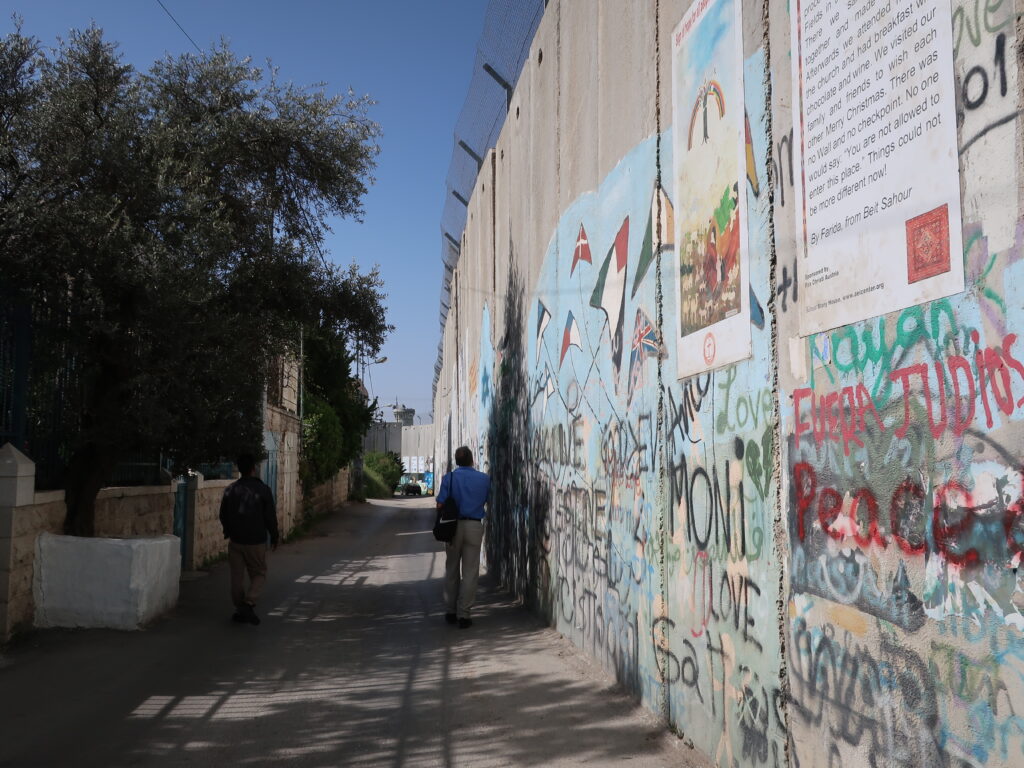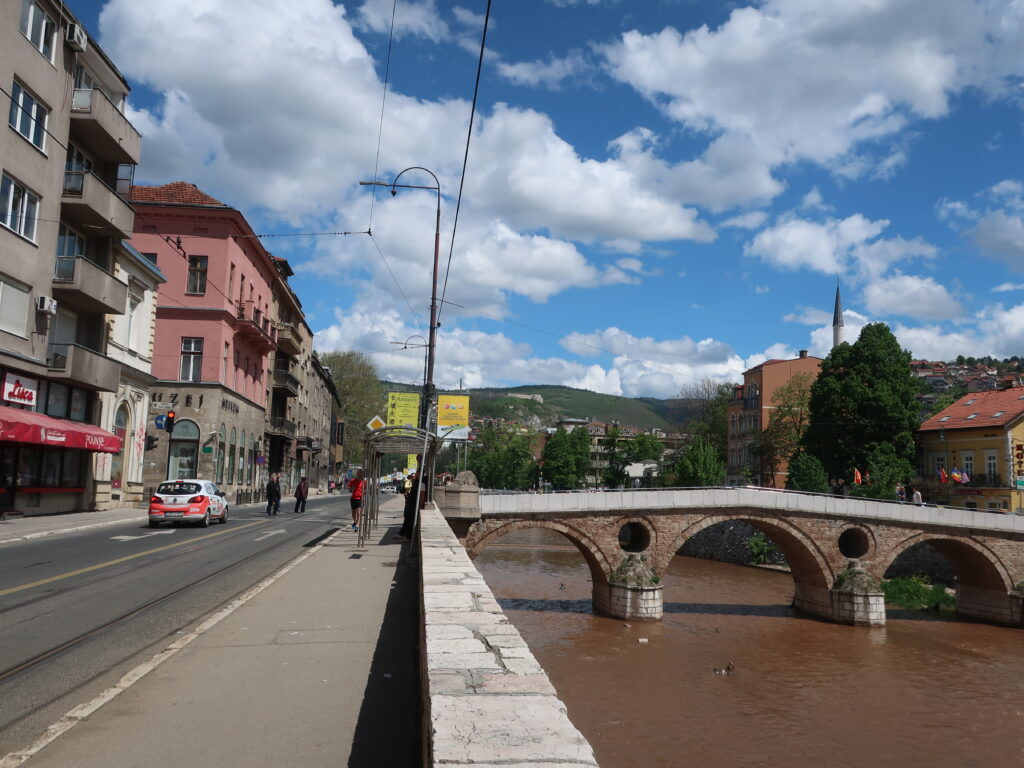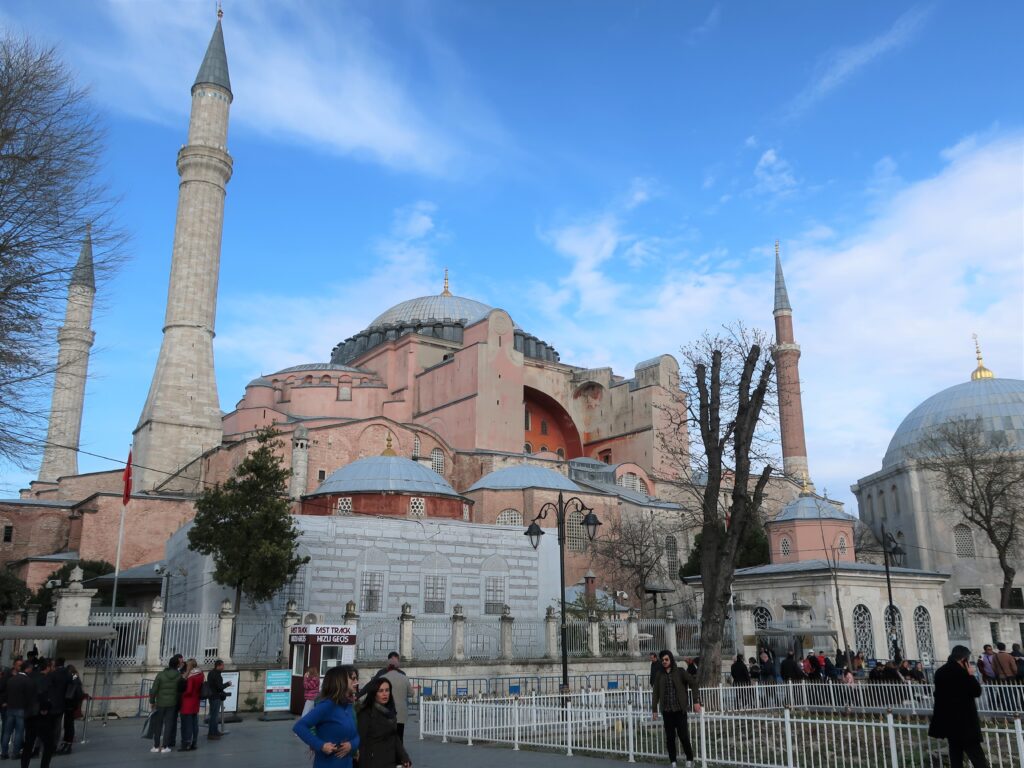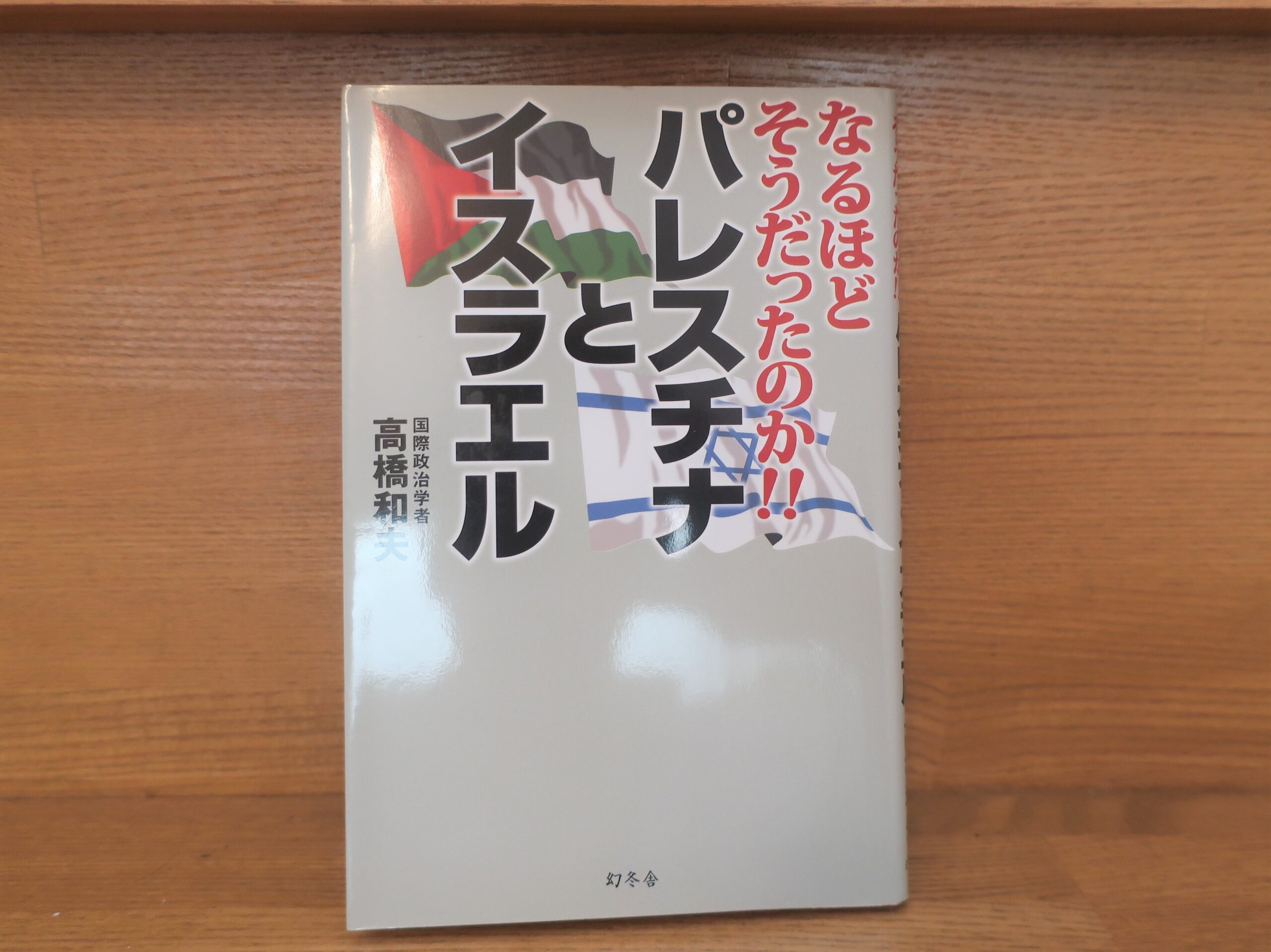Kazuo Takahashi, "I see what you mean! Palestine and Israel" Summary and Impressions - A recommended introduction to the Palestinian conflict! What is Britain's three-party diplomacy?
This time we would like to introduce a book written by Kazuo Takahashi, published by Gentosha in 2010, titled "I see so and so! Palestine and Israel" by Kazuo Takahashi, published by Gentosha in 2010.
Let's take a quick look at the book.
Why Can't We Get Along Forever? Why does the U.S. side with Israel? Are Jewish, Christian, and Muslim "gods" the same? The truth about the Palestinian issue with its complex past that no one has been able to write about.
AmazonProducts Page.
In the book's "Introduction," the author states
The Palestinian issue is difficult. Commentaries are even more difficult.
I want to explain this issue in a way that is easy to understand. With this in mind, I have already published an explanation of this issue. However, I wrote this book to make it even easier to understand.
Gentosha, Kazuo Takahashi, "I see! Palestine and Israel" from
As the author states here, this book will be one written to convey the Palestinian issue, which is complex and difficult to understand, as clearly as possible.
I have fond memories of this book, which helped me a lot.
This is because I am a 2019Around the Worldin Israel.

I had planned to actually learn about the Palestinian issue there. However, I still needed to do some preparatory study.
So, in order to gain a basic knowledge of the Palestinian issue, I first learned about the general flow and historical background in this book.
This book is actually a great introductory book and explains the complex Palestinian situation in an easy-to-understand manner.
In the first chapter, the author describes this Palestinian issue as follows.
There is a land called Palestine, but there is no country called Palestine. There is a country called Israel and a country calledGaza StripAnd,West BankThe reason why there are place names but not the countries of those place names is explained in this chapter. In this chapter, we will discuss why there are place names but not the countries of those place names.
2000 years ofReligious Conflict between Muslims and JewsThe Palestinian issue is often described in such terms. However, this explanation is wrong. This is because Islam was founded in the 600s, i.e., the 7th century, and has a history of about 1,400 years. There is no way that Judaism and Islam have been in conflict for 2000 years.
To add, there are many Christians living in Palestine, the land in question, and it is disrespectful to Christians to simplify it as a "conflict between Muslims and Jews. Christianity originated here in the first place, and those who have kept its teachings are still living there today. It is often dangerous to talk too simply and plainly.
Gentosha, Kazuo Takahashi, "I see! Palestine and Israel" P16
This is a very interesting explanation from the get-go. It is very telling that you have written it in a way that even beginners can be interested in it.
The author will now go on to describe why this Palestinian problem occurred.
What is Zionism?
So when did the problem occur and what is the problem? And who is fighting with whom and what are they fighting about?
It was at the end of the 19th century that the problems that continue to this day began to occur in the land of Palestine. European Jews began to move to Palestine. They moved to Palestine to create their own state.
Jewish people's movement to create their own country.ZionismThe word "ism" is a combination of the words "Zion" and "ism" from Mount Zion. The word "ism" is a combination of the words "ism" and "Zion" from Mount Zion. The word "ism" means "principle. Principle, in this case, is the striving for a certain political idea. What is Mt,Central City of PalestineIt is another name for Jerusalem. Jerusalem is built on top of a hill at an elevation of about 835 meters. The new Tokyo Tower, or Sky Tree, is 635 meters high, so the city is located higher than that.
When European Jews entered Palestine, a conflict began between them and the Palestinians who were already living on the land. This was the beginning of the Palestinian problem, which continues to this day. This is the beginning of the Palestinian problem, which continues to this day.
Gentosha, Kazuo Takahashi, "I see! Palestine and Israel" P16-17
The first important concept when considering the Palestinian issue is that of "Zionism".
This concept of "Zionism" to create a Jewish state was the beginning of the conflict in Palestine.
The Rise of Nationalism - Why did European Jews head for Palestine?
Why, then, did European Jews begin to consider emigrating to Palestine at this time? It was because the persecution of Jews in Europe intensified toward the end of the 19th century. Why, then?
The answer is that this is the time of year to be in Europe.nationalismThis is because the spread of This nationalism led to the persecution of the Jews. What exactly is this nationalism?
Ethnocentrism is the idea that
(1) Humanity can be classified into units called ethnic groups.
(⑵Each ethnic group should have its own state. This.law of national self-determinationcall (someone)
(3) Individuals belonging toContributing to the development of the peopleshouldAccording to this view, the best way for an individual to live is to live his or her ownNation of peoplesIf one's own people do not have a nation, one is to work for its construction.
And those who are obsessed with this mindset are willing to make great sacrifices for their people and their nation. Sometimes they even give their lives. The act of dying for one's country is considered the highest honor in nationalism.
Gentosha, Kazuo Takahashi, "I see! Palestine and Israel" P 17-18
It is very important to note that nationalism spread at the end of the 19th century, which changed world affairs rapidly.
This is not only history for Jews, but has had a major impact everywhere in the world. The outbreak of World War I was not unrelated to the rise of nationalism. The Sarajevo Incident, which was the direct result of a nationalist movement, was also a direct result of a nationalist movement.

And in Sarajevo, even at the end of the 20th century.Tragic ethnic conflictis happening.
The rise of nationalism sowed the seeds of conflict around the world.
What is "ethnicity" in the first place?
What, then, is an ethnic group?
This is a group of people who believe they have a common ancestor and share a common destiny.
Germans, French, Russians, Italians, Spaniards, etc. fall under this unit of ethnicity.
This is not established by objective criteria, but only by the assumptions of the members of the group. This assumption is facilitated if they speak the same language or believe in the same religion. As such nationalism grows, the majority Christians,Minority JewsThe tendency to exclude the Jews as the same people and did not want to accept them. In other words, because of their different religions. Persecution of Jews increased along these lines.
If Jews are not recognized as members of a nation-state, then let us create our own nation of outcasts. Then there would be no discrimination against Jews because of their religious differences. This is the idea that gave birth to Zionism.
But when you think about it, it is a strange idea. Europeans are moving into a land already inhabited and creating a new country. The convenience of the people who had already lived there was not taken into serious consideration. How did they come up with this idea?
This is because the end of the 19th century was an era of nationalism as well as imperialism. By imperialism, we mean,European PowersThe "United States of America" or the "United States of America" is the composition of Asia, Africa, and Latin America, which are freely divided and ruled by the United States for their own convenience.
The people of Europe and America during this period were running the world on their own. It was because of the ideas of these times that they ignored the wishes of the local (Palestinian) people in Palestine.Jewish Nation Buildingbegan. The second wind that stirred up Zionism was imperialism.
Gentosha, Kazuo Takahashi, "I see! Palestine and Israel" P 19-20
As described here, a movement to create a Jewish state in Palestine began around the end of the 19th century. And those who try to promote this movement are called Zionists.
This Zionist presence is the genesis of the Palestinian problem that continues to this day.
Now it is time to look at Britain's three-party diplomacy, where the Palestinian issue finally begins to look complicated.
Britain's three-party diplomacy
Who then ruled Palestine, which the Zionists had designated as the land of state-building? Until the end of World War I,Ottoman EmpireThe empire here means one gigantic nation. The word "empire" here means a huge nation.
This empire was the present-day Turkey.IstanbulThe capital city was located in the city of Kosovo, and it ruled a huge territory extending over Europe, Asia, and Africa.
Palestine was part of this empire. And although Muslims, Christians, and to a lesser extent Jews lived there, there was no conflict and they got along well.
The Zionists first persuaded the Ottoman rulers, known as "sultans," to begin emigrating to Palestine.
Eventually, in 1914,World War Ibegan. England, France, and other countries.the Alliesand Austria and other countries.allied sideIt was a war in which the The Ottoman Empire joined the allied side, including Germany and Austria.
Gentosha, Kazuo Takahashi, "I see! Palestine and Israel" P 22-24

The Palestinian issue finally became complicated because of Britain's three-party diplomacy during World War I. We will now look at the details of that trilateral diplomacy.
First Tongue Hussein McMahon Letter - Britain and the Ottoman Empire
The British, on the side of the Allies, sought to disrupt the Ottoman Empire, on the side of their allies. First, they called on the Arabs under Ottoman rule to revolt. After winning the war,Independent Arab Statespromised to do the same.
In 1915-16, letters were exchanged between the British leader "McMahon" and the Arab leader "Hussein" promising an independent Arab state. This wasHussein McMahon LetterI call him "Hussein". Incidentally, this Hussein is unrelated to former Iraqi President Hussein. The name Hussein is a common name among Muslims.
Gentosha, Kazuo Takahashi, "I see! Palestine and Israel" P 24
At the time, the Ottoman Empire was a huge empire that dominated Eastern Europe and the Middle East. The British wanted to disrupt this empire by seducing the Arabs into revolting against them. The Arabs wanted independence from the Ottoman Empire (Turks). The British took advantage of this sentiment and promised the Arabs that they would create an Arab state in Palestine after the victory of this war.
Biphobia Balfour Declaration - England and the Jews
On the other hand, the United Kingdom has been a Zionists'Cooperation in WarHe also demanded He promised the Zionists in 1917 that after winning the war, he would allow them to create a state of sorts in Palestine.
This is named after a British politician (Arthur Balfour) who promised,Balfour DeclarationIt is known as the It was a promise of one land to both Arabs and Zionists. It was British duplicitous diplomacy.
Gentosha, Kazuo Takahashi, "I see! Palestine and Israel" P 24-25
The British promised to give the same land to both Arabs and Jews. But of course, this was impossible. The British tried to sway both Arabs and Jews with these unfulfillable promises as a covert effort to undermine the Ottoman Empire.
But this was not the only unreasonable promise from the British. To my surprise, a third tongue also existed.
Third Tongue Sykes-Picot Agreement - England and France
However, in 1916, the British had also promised France to divide the Arab areas of the Ottoman Empire. This was followed by the British and FrenchSykes-Picot Agreement (1969)The two are called. Sykes is the name of the Englishman involved in negotiating this agreement, and Pico is the name of the Frenchman.
This "Sykes-Picot Agreement" established present-day Syria and Lebanon as France's sphere of influence, and Iraq, Jordan, and Palestine as Britain's.
In other words, he wanted to promise the same land to the Arabs and the Jews, and in the end, he wanted it for himself. Only in England, the land of gentlemen,three-party coalition: Jimintou, Jiyuutou and KoumeitouThe first is.
After World War I, Palestine became a British controlled territory. Specifically, Palestine wasBritish Mandate Territorybecame the "League of Nations". Whose mandate was the League of Nations, which was established after World War I.
Under the League's mandate, the British took over the land until the Palestinian people were able to stand on their own. In effect, the land became British territory, but as the 20th century progressed, the British began to hesitate about too overt colonial rule. Therefore, it was decided thatmandateThe name of the project was used. In other words, to the Arabs and Zionists.I promised.land, and the British took it for themselves without keeping their promises to either of them.
Gentosha, Kazuo Takahashi, "I see! Palestine and Israel" P 25-26
This was followed by World War II and the Holocaust.
After the war, there was also the Holocaust, which led to the popular immigration to Israel, and further to the founding of the State of Israel. The Palestinian issue then intensified, leading to a war in the Middle East.
The ongoing Palestinian problem had its roots in this kind of nationalism, Zionism, and British tripartite diplomacy, which became decisively complicated after World War II.
This book explains such a process very clearly.
I will stop here in this article, but what I have discussed so far is very important basic knowledge about the roots of the Palestinian problem.
I highly recommend this book as an introduction to the Palestinian issue. I highly recommend you to pick up this book.
The above is a recommended primer on Zionism and Britain's three-party diplomacy - The Palestinian Conflict! Kazuo Takahashi, "I see, I see! Palestine and Israel".
Next Article.
Click here to read the previous article.
Related Articles







































